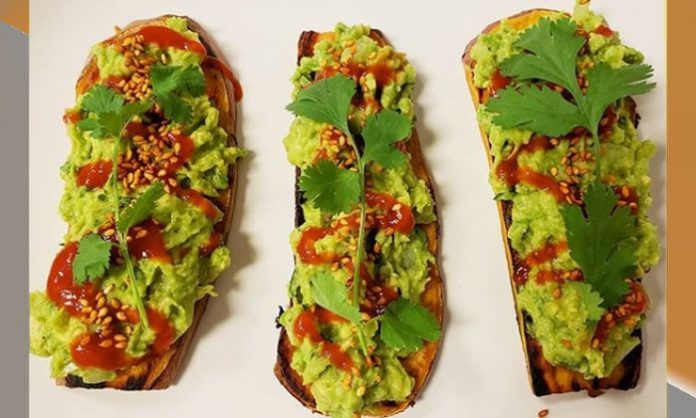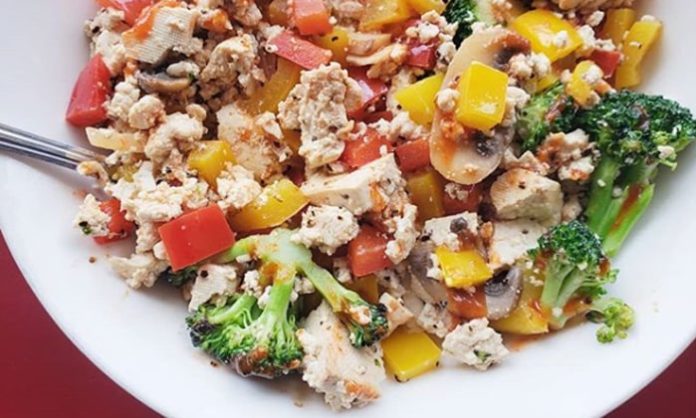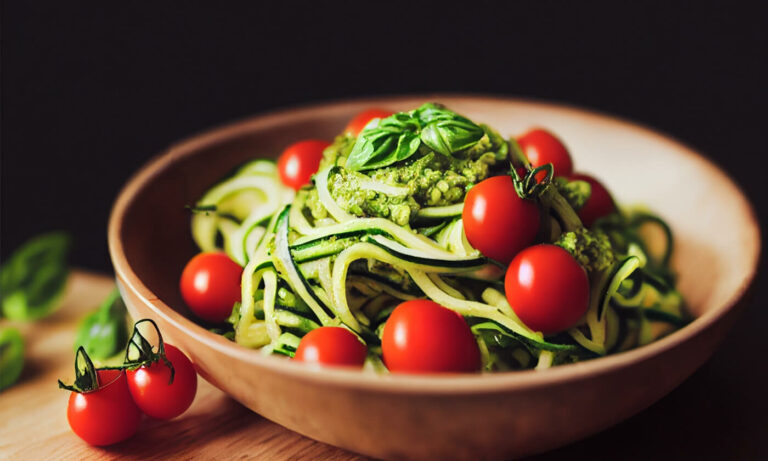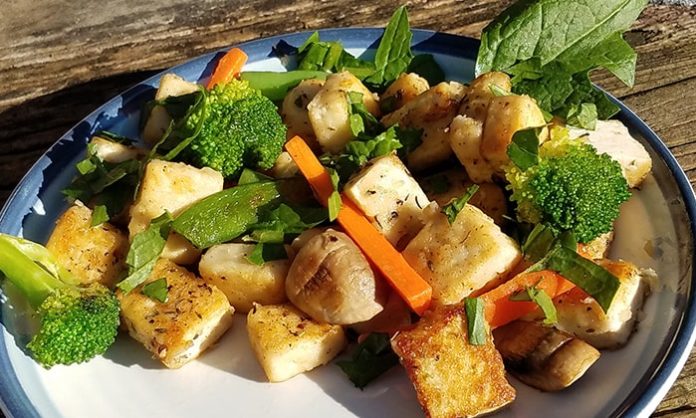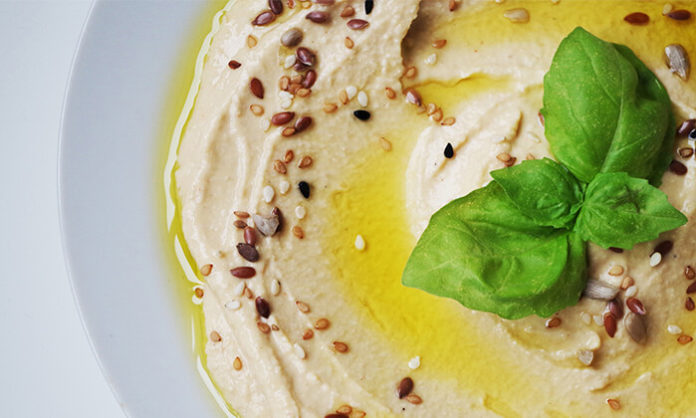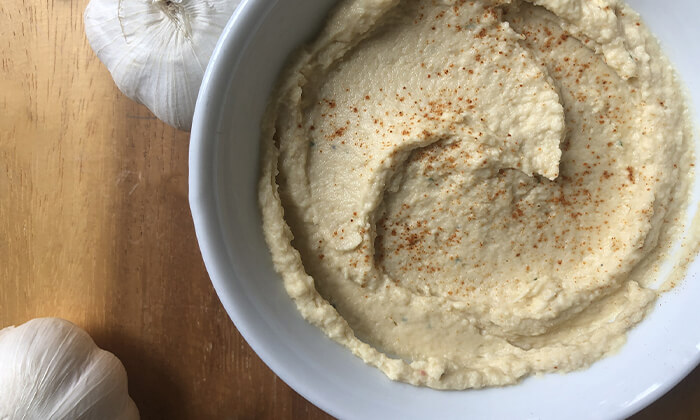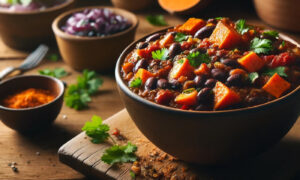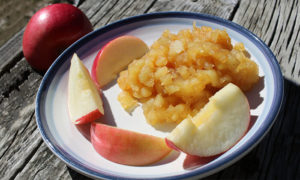Eating a Low-Carb Vegan Diet
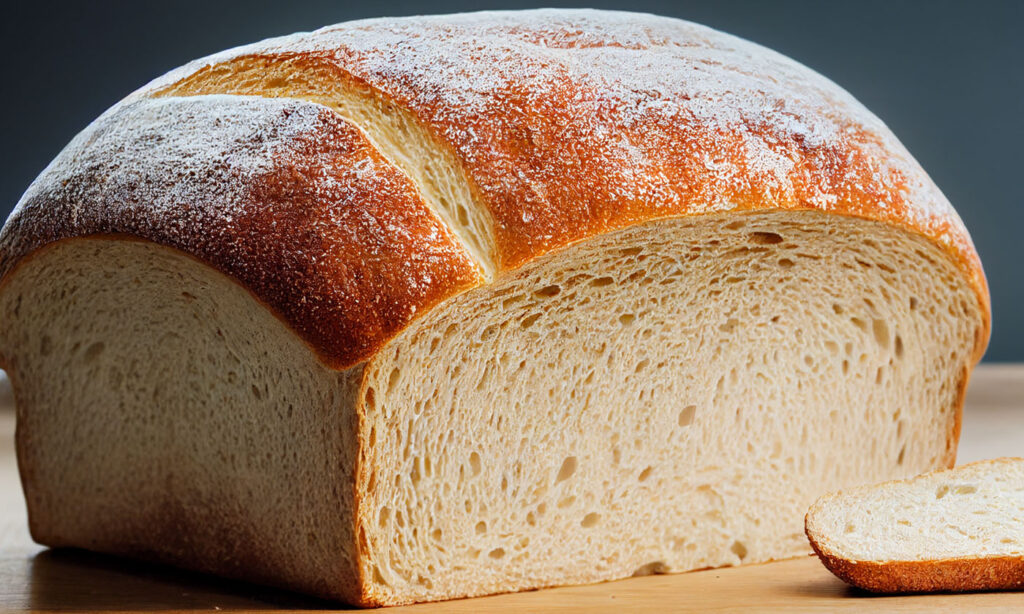
Embarking on a low-carb vegan diet marries the principles of restricting carbohydrates with avoiding animal products. This diet style aims at gaining the health benefits of a vegan diet, while also potentially aiding in weight management through low-carbohydrate consumption. It’s a deliberate choice that concentrates on plant-based foods that are naturally lower in carbs but rich in nutrients.
Designing your low-carb vegan diet requires a thoughtful approach to ensure you’re meeting your nutritional needs. It involves focusing on macronutrients—like protein from legumes and fats from nuts and seeds—while being mindful of micronutrient intake to avoid deficiencies. Foods that become staple in your diet may include leafy greens, high-fiber fruits, and plant-based proteins, all of which contribute to a well-rounded, nutritious meal plan. Exploring diverse recipes and meal ideas keeps the diet sustainable and enjoyable.
Key Takeaways
- Adopting a low-carb vegan diet combines carbohydrate restriction with the exclusion of animal products.
- Proper planning is essential to meet both macronutrient and micronutrient needs on this diet.
- A variety of whole foods and plant-based proteins are integral to maintaining a balanced low-carb vegan diet.
Understanding Low-Carb Vegan Diets
With a low-carb vegan diet, you’ll find it focuses on high-quality plant proteins, fats, and low-carb vegetables while excluding all animal products.
Definition and Principles
Low-carb vegan diet: A dietary approach that restricts carbohydrates typically found in grains, starchy vegetables, and sugars, while also eliminating all animal-derived products. The core principle of this diet is to source the majority of your calories from plant-based fats and proteins while maintaining a varied and nutrient-rich intake of food to meet your energy requirements.
Main Components:
- Fats: Nuts, seeds, avocados, and oils.
- Proteins: Tofu, tempeh, legumes, and high-protein grains like quinoa.
- Fiber: Leafy greens, broccoli, Brussels sprouts, and asparagus.
Health Benefits
Weight Loss: By reducing carb intake and increasing consumption of fiber-rich foods, you may experience weight loss due to the feeling of fullness fiber provides, leading to a natural reduction in calorie intake.
- Heart Disease and Blood Pressure: A low-carb vegan diet rich in nuts and seeds can support heart health by potentially improving blood pressure and cholesterol levels.
- Blood Sugar: Plant-based diets naturally have a low glycemic index, helping you to maintain stable blood sugar levels, which is beneficial for preventing diabetes.
You may also find that this diet enhances your overall nutrition by focusing on high-quality plant foods rich in vitamins, minerals, and antioxidants.
Potential Challenges
Meeting daily protein requirements can be a challenge on a low-carb vegan diet, yet it’s achievable through careful planning and incorporating diverse protein sources like lentils and hemp seeds.
Ensuring adequate vitamin intake: Since B12 is naturally present in significant amounts only in animal products, you’ll need to ensure you’re supplementing with vitamin B12 to prevent deficiency.
Complete Nutrition: Keep a close eye on nutrients like iron, calcium, and omega-3 fatty acids, which can be less available in a low-carb vegan diet unless you make conscious food choices like fortified foods or supplements.
Remember, it’s crucial to approach a low-carb vegan diet with a well-thought-out plan to meet your nutritional needs while enjoying the health benefits it offers.
Macronutrients in Focus
When adopting a low-carb vegan diet, it’s crucial to understand how to meet your macronutrient needs. Proteins, fats, and carbohydrates play vital roles in your health, and it’s important to select nutrient-dense sources to thrive on a vegan diet.
Proteins and Vegan Sources
Your body needs protein for repair and growth. Vegan sources rich in protein include tofu and tempeh, both made from soybeans, which are complete proteins containing all essential amino acids. Beans and lentils also provide a good amount of protein and can be easily incorporated into your meals. Other plant-based protein options include a variety of seeds and nuts which not only offer protein but are also a good source of healthy fats.
- Tofu: A versatile food that can be used in savory and sweet dishes alike.
- Tempeh: It has a firm texture and a nutty flavor, perfect for stir-fries and grilling.
- Beans and Lentils: Ideal for soups, salads, and as meat substitutes in vegan recipes.
Fats and Healthy Sources
Fats are essential for nutrient absorption and brain health. Embrace healthy fats that come from foods like avocado, olive oil, and coconut oil. Nuts and seeds also contribute to your fat intake while providing essential fatty acids that the body cannot produce on its own. These sources can add rich flavor and satiety to your low-carb vegan dishes.
- Avocado: Great for making smoothies creamier or as a butter substitute on toast.
- Olive Oil: Best used for salad dressings or drizzling over cooked dishes.
- Coconut Oil: Can be used for cooking at higher temperatures due to its high smoke point.
Understanding Carbs and Fiber
Carbohydrates provide energy, but on a low-carb diet, you’ll focus on complex carbs and fiber, which have minimal impact on blood sugar levels. Vegetables, fruits, and whole grains are ideal choices. While moderating your carb intake, ensure that you’re getting enough fiber, which is crucial for digestive health and can be found in abundance in plant-based foods.
- Vegetables: Load up on leafy greens and non-starchy veggies for a high-fiber, low-carb option.
- Fruits: Opt for berries and other low-glycemic fruits to keep carbs in check.
- Whole Grains: Choose grains like quinoa and bulgur in moderate amounts for a fiber boost.
Designing Your Low-Carb Vegan Diet
When transitioning to a low-carb vegan diet, your main focus should be on ensuring nutritional balance while selecting plant-based foods that are lower in carbohydrates. This can be achieved through careful meal planning, understanding of balanced meal creation, and strategic grocery shopping.
Meal Planning and Preparation
To effectively adopt a low-carb vegan diet, meal planning is a critical step. Begin by deciding on meals for the week and preparing a detailed shopping list to avoid impulse buying. Look for recipes that emphasize high-fiber, low-carb ingredients such as leafy greens, nuts, and seeds. Preparing meals in advance can help you stay on track and prevent setbacks.
Creating Balanced Meals
Your low-carb vegan meals should have a balance of protein, fats, and low-carb vegetables to maintain your energy levels and nutrient intake. Proteins can come from tofu, tempeh, and a variety of legumes, while healthy fats are found in avocados, nuts, and seeds. Create meals that combine these elements to ensure a balance of nutrients.
Food List and Shopping Tips
Stick to a grocery list of low-carb vegan options to streamline your shopping and ensure dietary compliance. Here’s a quick reference:
- Proteins: Tofu, tempeh, seitan, and legumes.
- Fats: Avocados, nuts (e.g., almonds, walnuts), seeds (e.g., chia, flaxseeds), and oils (e.g., olive oil, coconut oil).
- Carbs: Low-carb vegetables like broccoli, spinach, kale, and zucchini. Limited portions of complex carbs such as quinoa and sweet potatoes.
- Others: Unsweetened almond milk, coconut yogurt, vegan cheeses, and sugar-free condiments.
Prioritize whole foods and consider bulk buying shelf-stable items. For fresh produce, opt for seasonal and local products when possible to ensure freshness and value.
Key Foods and Ingredients
In a low-carb vegan diet, focusing on nutrient-dense foods is essential to meet your dietary needs. The following key foods and ingredients should form the foundation of your meals, ensuring a well-rounded nutritional profile.
Vegetables and Greens
Your low-carb vegan diet should be rich in vegetables, especially leafy greens. Include a variety of:
- Broccoli: A cruciferous vegetable high in fiber and vitamins C and K.
- Spinach and Kale: These greens are loaded with iron, calcium, and other minerals.
- Mushrooms: Offer a savory flavor and can be a good source of vitamin D.
- Zucchini and Asparagus: Great for variety and are low in carbohydrates.
Plant Proteins
Protein is crucial, and you can obtain it from plant sources such as:
- Tofu and Tempeh: Provide a complete protein source and can take on many flavors.
- Seitan: While not gluten-free, it’s a protein-rich meat substitute.
- Edamame: Young soybeans that are a tasty snack or addition to meals, high in protein.
Healthy Fats
Incorporate healthy fats that are vital for nutrient absorption:
- Avocado: Offers monounsaturated fats and is versatile in recipes.
- Nuts and Seeds: Almonds, chia seeds, and flaxseeds, for instance, provide healthy fats and protein.
- Olive Oil: Use in dressings and low-heat cooking for its heart-healthy fats.
Herbs and Seasonings
Enhance the taste of your meals without adding carbs with herbs and seasonings:
- Salt and Pepper: Basics for seasoning but use salt in moderation.
- Turmeric and Garlic: Turmeric provides anti-inflammatory benefits, while garlic supports heart health.
- Fresh herbs: Such as basil and parsley, to add flavor and nutritional value without extra carbs.
Recipes and Meal Ideas
Explore the variety of dishes you can create with a low-carb vegan diet. Packed with flavor, these meal ideas focus on plant-based proteins and low-carb vegetables to keep you satisfied.
Breakfast Options
Start your day with a protein-rich Tofu Scramble, which you can make by sautéing crumbled tofu with turmeric, nutritional yeast, and your choice of vegetables. Another satisfying choice is Avocado Toast using a low-carb, whole-grain bread and topping it with mashed ripe avocado, a sprinkle of hemp seeds, and a dash of red pepper flakes.
- Tofu Scramble Recipe: Sauté crumbled tofu, turmeric, nutritional yeast, spinach, and mushrooms.
- Avocado Toast Recipe: Spread mashed avocado onto low-carb bread, top with hemp seeds, and season with red pepper flakes.
Lunch and Dinner
For a hearty lunch, whip up some Zucchini Noodles with a homemade basil pesto sauce. Dinner can be an Asian-inspired Tofu Cucumber Salad with Spicy Peanut Dressing or a vibrant Veggie Stir-Fry using a variety of colorful vegetables, soy sauce, and a touch of sesame oil.
- Zucchini Noodles Recipe: Spiralize zucchini and toss with basil pesto sauce.
- Tofu Cucumber Salad Recipe: Combine tofu, cucumber, carrot, and cilantro, drizzle with spicy peanut dressing.
- Veggie Stir-Fry Recipe: Stir-fry broccoli, bell peppers, and snap peas; season with soy sauce and sesame oil.
Snacks and Desserts
Keep hunger at bay with nutrient-dense snacks like homemade Hummus with raw vegetables or a mixture of Nuts and Berries for a sweet and savory treat. For dessert, savor a piece of Dark Chocolate that’s low in sugar but rich in flavor.
- Hummus Recipe: Blend chickpeas, tahini, lemon juice, garlic, and olive oil until smooth.
- Nuts and Berries: Combine almonds, walnuts, fresh or dried berries for a quick snack.
- Dark Chocolate: Choose a product with a high cocoa content and minimal added sugar.
Incorporate these meal ideas throughout your day to maintain a varied and delicious low-carb vegan diet.
Common Myths and Misconceptions
In exploring a low-carb vegan diet, it’s crucial to differentiate between myth and evidence-based fact. Let’s address some of the most common misconceptions.
Protein Deficiency Concerns
Myth: You’ll suffer from protein deficiency on a vegan diet, especially if it’s low-carb.
Reality: A well-planned low-carb vegan diet can provide all the essential amino acids your body needs. High-protein vegan foods include tofu, tempeh, and various legumes. For more detailed guidance, investigate the truth behind protein and vegan diets.
Carbs Are Unhealthy
Myth: All carbs are bad and should be avoided.
Reality: Carbohydrates are a diverse group of foods. While you may choose to limit certain types, such as refined sugars and starches, other carbs like those found in vegetables and whole grains are integral to a healthy diet. Distinguishing between different types of carbs is important, and you can learn about the complexity of carbohydrates in a diet.
The Necessity of Animal Products
Myth: Vegan diets are incomplete because they lack critical nutrients found only in animal products.
Reality: Essential nutrients such as iron, calcium, and even vitamin B12 can be obtained from plant-based sources or through fortified foods and supplements. It’s important to plan your diet to ensure you’re not missing out on these nutrients, and the myth of the necessity for animal products is increasingly being debunked by current science. Discover how you can thrive on a plant-based diet by examining plant-based nutrition.
Sustainability and Environmental Impact
Adopting a low-carb vegan diet can have a significant impact on both the environment and the sustainability of food systems. By shifting away from animal products to plant-based alternatives, you can reduce your carbon footprint and contribute to a more eco-friendly and ethical food landscape.
Reducing Carbon Footprint
When you choose a low-carb vegan diet, you are actively reducing reliance on animal agriculture, which is a major contributor to greenhouse gas emissions. Plants require less energy to grow than the energy needed to raise livestock, leading to less resource consumption and lower emissions. A study pointed out the effectiveness of plant-based diets in cutting down greenhouse gas emissions, noting the favorable comparison between low-carb plant-based foods and their animal-derived counterparts. The production of plant-based proteins such as soy, when compared to meat, has a smaller environmental footprint, supporting the shift towards sustainable dietary choices.
Ethical Considerations of Food Choices
Your food choices impact the planet and all its inhabitants. By choosing a vegan diet, you minimize the harm inflicted on animals and promote a more ethical use of resources. Integrating a variety of plant-based foods ensures you receive a broad spectrum of nutrients while supporting ethical farming practices. The consumption of high-carb foods and beverages typically involves extensive processing, which can be resource-intensive. In contrast, a zero-carb diet focuses on whole foods, which can be more eco-friendly and reduce the exploitation of animals for dietary purposes.
By focusing on a low-carb vegan diet, you embrace both sustainability and ethical food choices, helping to pave the way for a healthier planet and a more responsible relationship with food.
Navigating Social Events and Dining Out
When embracing a low-carb vegan diet, eating out and attending social events can present unique challenges. Your dietary preferences are manageable with a strategic approach to menu choices and communication.
Tips for Eating Out
When dining out, study the restaurant’s menu online in advance to identify vegan options. Look for dishes that are primarily vegetable-based, and don’t hesitate to ask the staff if they can modify menu items to suit your low-carb needs. Consider the following tips:
- Call ahead: Inquire about low-carb vegan options and ask if the kitchen can accommodate your diet.
- Be specific: Clearly explain what you can and can’t eat. Use simple language to avoid misunderstandings.
- Side dishes: Don’t overlook side dishes, which can often be combined to create a fulfilling meal.
Handling Social Events
Social gatherings require forethought to ensure you can stick to your dietary goals. Here’s how you can navigate these events:
- Communicate: Inform the host of your dietary restrictions and offer to bring a dish that fits your diet.
- Eat beforehand: If you’re unsure about the available options, eat a small, low-carb meal before attending.
- Focus on others: Keep the emphasis on socializing rather than food. Your diet should not be a barrier to enjoying the company.
Supplementation and Nutrient Intake
When adopting a low-carb vegan diet, you need to be mindful about maintaining optimal levels of certain nutrients that are commonly low in plant-based diets, especially when carbohydrates are restricted. Supplementation can help prevent nutrient deficiencies.
Vitamin B12 and Iron
Vitamin B12 is crucial for nerve function, brain health, and the production of red blood cells. Since B12 is not found in plant foods, you should consider taking a B12 supplement to meet your daily needs. Iron is another nutrient to watch out for, as it’s mostly present in high amounts in meat products. Consuming fortified foods or an iron supplement might be necessary. Combining vitamin C-rich foods with iron sources can enhance absorption.
- Recommended B12 Intake: 2.4 μg/day for adults
- Recommended Iron Intake: 18 mg/day for adult women, 8 mg/day for adult men
Ensuring Adequate Omega-3
Omega-3 fatty acids are important for cardiovascular health and cognitive function. On a low-carb vegan diet, sources like flaxseeds and walnuts can ensure you’re getting enough. Including a tablespoon of ground flaxseeds or a serving of walnuts in your daily routine is a good strategy. If you’re concerned about omega-3 levels, consider an algae-based omega-3 supplement as a direct source of EPA and DHA, the active forms of omega-3.
- Suggested Omega-3 Sources:
- Flaxseeds: 1-2 tablespoons ground, daily
- Walnuts: A handful, daily
- Omega-3 supplement: As directed on the package
By incorporating these supplements and nutrient-rich foods into your diet, you can keep your nutrient levels well-balanced and support overall health within the realms of a low-carb vegan lifestyle.
Frequently Asked Questions
In navigating a low-carb vegan diet, it’s important to know the foods you can rely on, how to meet nutritional needs like protein intake, and ways to enjoy satisfying meals throughout the day.
What are some staple foods for a low-carb vegan diet?
Your low-carb vegan pantry should include nuts, seeds, tofu, tempeh, and low-carb vegetables such as leafy greens, zucchini, and cauliflower. These provide a variety of nutrients while keeping carbs in check.
How can I ensure I’m getting enough protein on a low-carb vegan meal plan?
Focus on high-protein, low-carb options like seitan, hemp seeds, and nutritional yeast. Protein needs can also be met through a variety of plant-based sources.
Can you suggest some low-carb vegan snacks for on-the-go?
Consider packing olives, avocado, and homemade trail mix with pumpkin seeds and almonds. These snacks are both nutritious and convenient for busy days.
What does a daily low-carb vegan meal plan look like for weight loss?
A meal plan might include a spinach and mushroom scramble for breakfast, zucchini noodles with pesto for lunch, and stir-fried tofu with mixed vegetables for dinner. These meals are balanced and help in creating a caloric deficit.
What are some satisfying low-carb vegan breakfast options?
Start your day with a chia seed pudding or a smoothie bowl using avocado as a thickener to attain both fullness and necessary nutrients on your low-carb journey.

